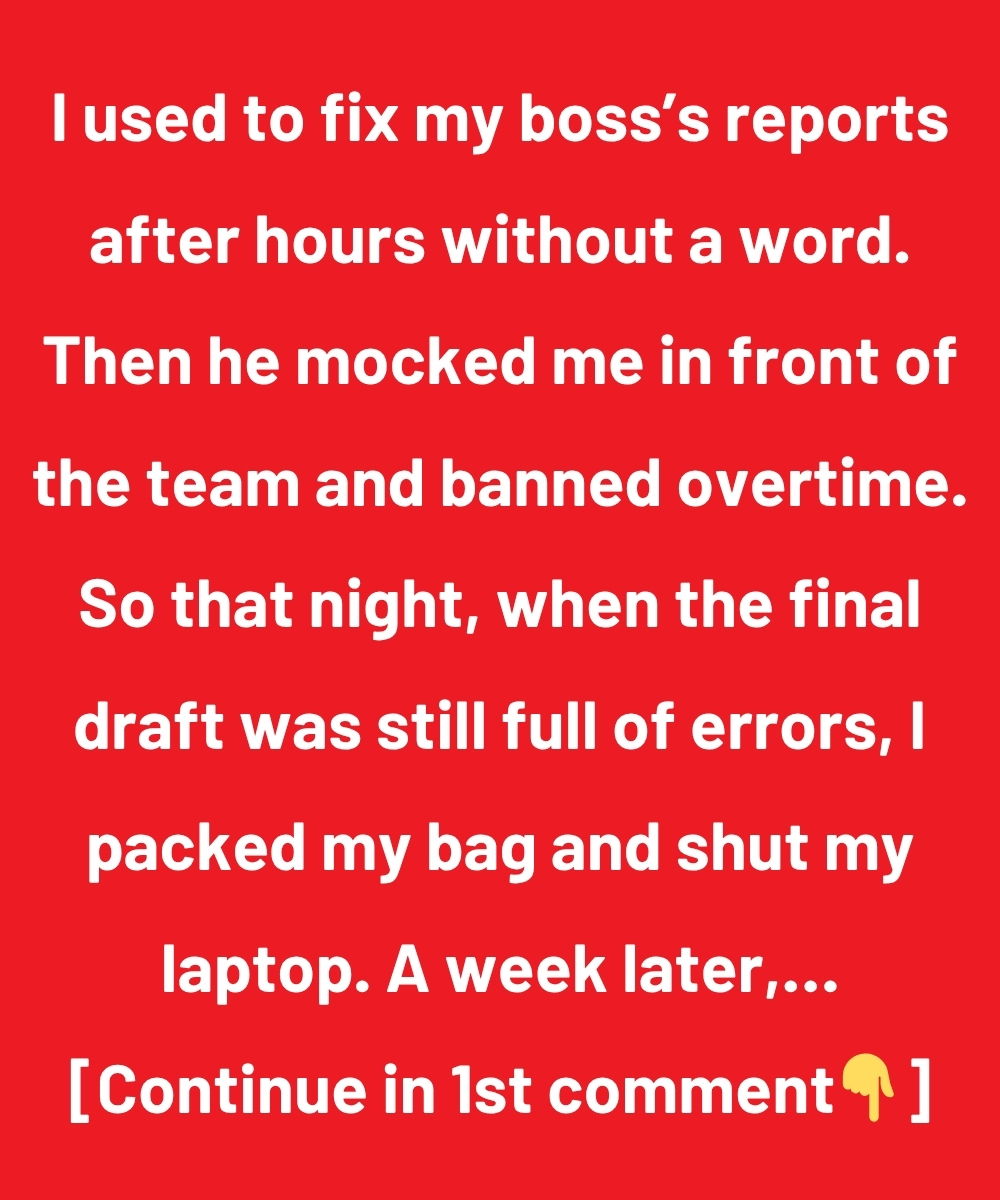
Having a job is a cornerstone of adult life—it brings income, routine, and a sense of purpose. But workplaces also gather a mix of personalities, which can lead to friction, misunderstandings, or clashing egos.
Office drama, whether caused by rivalry, miscommunication, or power trips, is often unavoidable. Still, how we respond to it determines whether we survive it or grow from it.
What Happens Behind the Curtain
Hi,
For the longest time, I believed staying late made me a loyal employee.
Every evening, after the office lights dimmed and chairs sat empty, I stayed back at my desk, working on a report that wasn’t even mine.
It belonged to my boss: an error-filled, rushed, chaotic mess that needed fixing before it was sent out the next day.
Effort in the Shadows

I didn’t say a word. I convinced myself I was protecting our team’s image.
In truth, I was constantly cleaning up someone else’s carelessness—and he never once acknowledged it.
One morning, in a team meeting, he turned to me and smirked, “We all appreciate your… heroic efforts, but you’re not being paid to play the hero.”
Dismissed and Disrespected
The room chuckled. I didn’t. It felt like a slap—no thank-you, no recognition, just a public put-down.
Later that same day, he sent a company-wide email: “Reminder: no overtime without written permission.” No personal message—just a cold, blanket policy obviously aimed at me.
So Be It

Fine, I thought. If overtime’s not wanted, I won’t give it. From that moment, I clocked out at 5 p.m. sharp.
I stopped staying late. I stopped fixing his report. I stopped going the extra mile.
Boundaries Drawn
The next day, I stuck to my responsibilities and nothing more. I left at closing time, leaving his half-done report untouched.
It still sat in our shared folder, riddled with bad numbers, typos, and outdated charts.
Normally, I’d have cleaned it up—but now? That was no longer my concern.
Letting the Cards Fall

A week later, the report was delivered to the client, errors and all. That evening, while I finally enjoyed a rare steak dinner with my wife, my phone buzzed nonstop.
First, a message in the group chat: “Why doesn’t this data match last week’s?” Then a direct message from my boss: “Did you review the report?”
This Time, I Didn’t
I didn’t reply. I was enjoying a peaceful night out—the first in a long time.
By 9 p.m., the client was furious. A late-night call with upper management followed.
People scrambled to salvage the situation. But the damage was already done.
And me? I slept like a rock.
A Shift in the Air

The next morning, when I walked into the office, my boss wouldn’t meet my eyes.
He looked exhausted. Shaken. His energy was different—quiet, careful.
That day, he reviewed his own work. He didn’t apologize. He didn’t say a word about the disaster.
But he never joked about “heroics” again. And not once after that did he send another email about overtime.
Hard-Won Quiet
Sometimes, the best kind of justice comes not from confrontation, but from simply doing exactly what’s required—nothing more, nothing less.
I didn’t argue or cause a scene. I followed the rules, just as I’d been told.
And in doing so, I showed him—and perhaps the entire team—how much I’d been quietly holding everything together.
Quiet Power
If you’re the kind of person who silently picks up the slack, maybe it’s time to step back.
Let them see what things look like without your invisible support. You don’t need to shout to make a point.
Sometimes, following the rules to the letter is all it takes to spark real change.
The Heart of Drama
Workplace drama might seem petty, but beneath the tension lies something deeper: emotion, humanity, and lessons.
It forces us to confront unfairness, to grow a tougher skin, and sometimes to rediscover our worth.
In its own way, it teaches empathy, fuels resilience, and reminds us that storytelling—especially the kind that unfolds around a water cooler—connects us in unexpected ways.
















